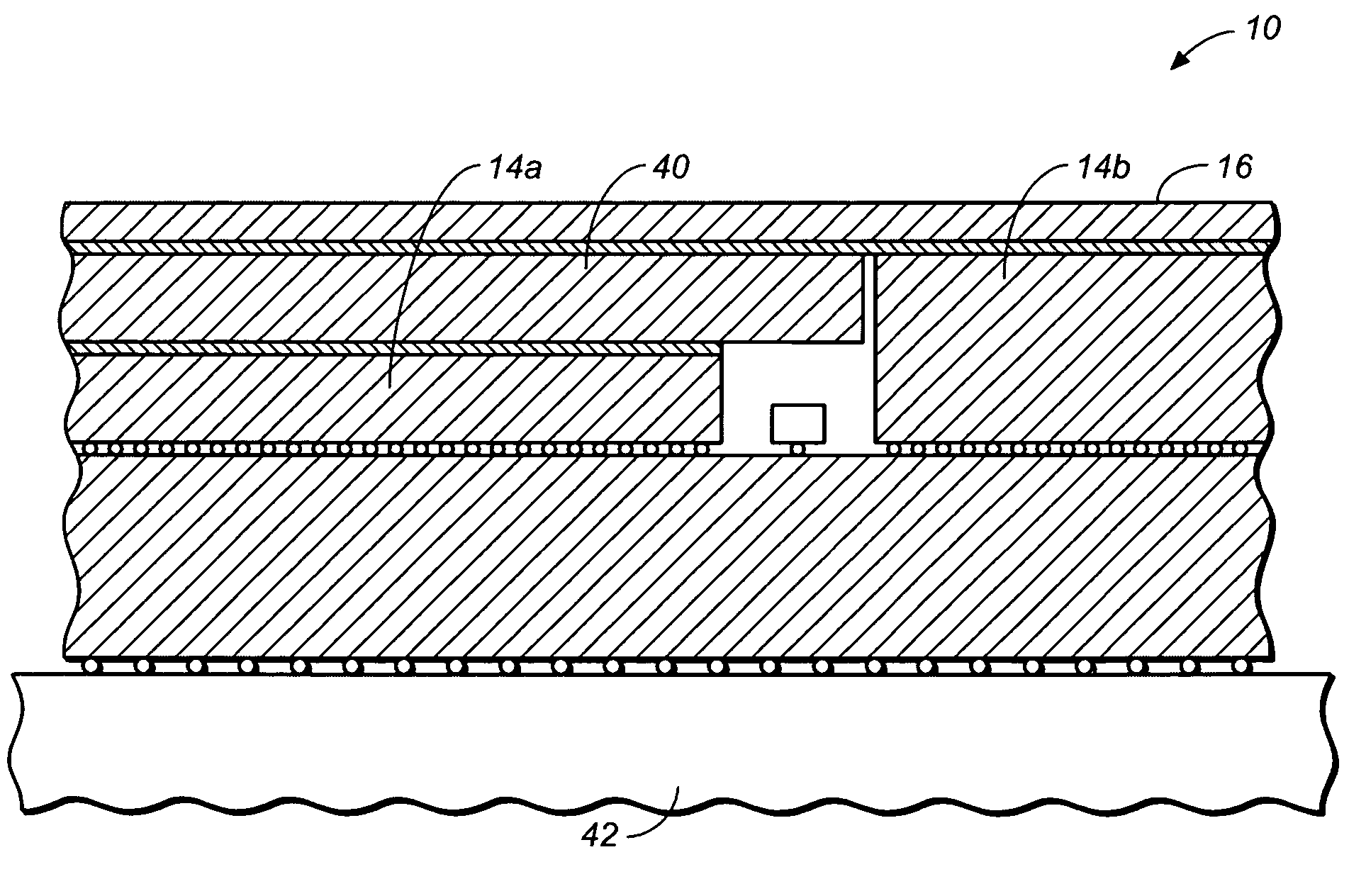Multi-chip package having a contiguous heat spreader assembly
a heat spreader and integrated circuit technology, applied in the direction of semiconductor devices, semiconductor/solid-state device details, electrical apparatus, etc., can solve the problems of increasing parasitics, requiring higher drive currents, and increasing power dissipation, so as to achieve greater thermal resistance elements, greater thermal transfer efficiency, and greater thermal transfer
- Summary
- Abstract
- Description
- Claims
- Application Information
AI Technical Summary
Benefits of technology
Problems solved by technology
Method used
Image
Examples
Embodiment Construction
[0023]Turning now to FIG. 1, a portion of a multi-chip package 10 is shown along plane A—A of FIG. 2. Package 10 includes a multi-layer substrate 12, two or more integrated circuits 14 placed on substrate 12, and a heat spreader 16 placed on the integrated circuits 14. Substrate 12 preferably includes multiple layers of conductive elements separated by a dielectric material. The process steps in forming a multi-layer substrate 12 is generally well known. For example, the dielectric material may comprise multiple grades of epoxy resins supported on woven glass fabric. The material is often referred to as a fiberglass-epoxy material. Alternatively, the material can be made of ceramic (e.g., aluminum oxide, alumina, Al2O3, or aluminum nitride). Still further, the material can be made of organics, such as polymide or Teflon®. The epoxy materials or resins can be G-10 or FR-4 grades of epoxy resins, if desired.
[0024]The conductive layers can be made of any electrically conductive materia...
PUM
 Login to View More
Login to View More Abstract
Description
Claims
Application Information
 Login to View More
Login to View More - R&D
- Intellectual Property
- Life Sciences
- Materials
- Tech Scout
- Unparalleled Data Quality
- Higher Quality Content
- 60% Fewer Hallucinations
Browse by: Latest US Patents, China's latest patents, Technical Efficacy Thesaurus, Application Domain, Technology Topic, Popular Technical Reports.
© 2025 PatSnap. All rights reserved.Legal|Privacy policy|Modern Slavery Act Transparency Statement|Sitemap|About US| Contact US: help@patsnap.com



